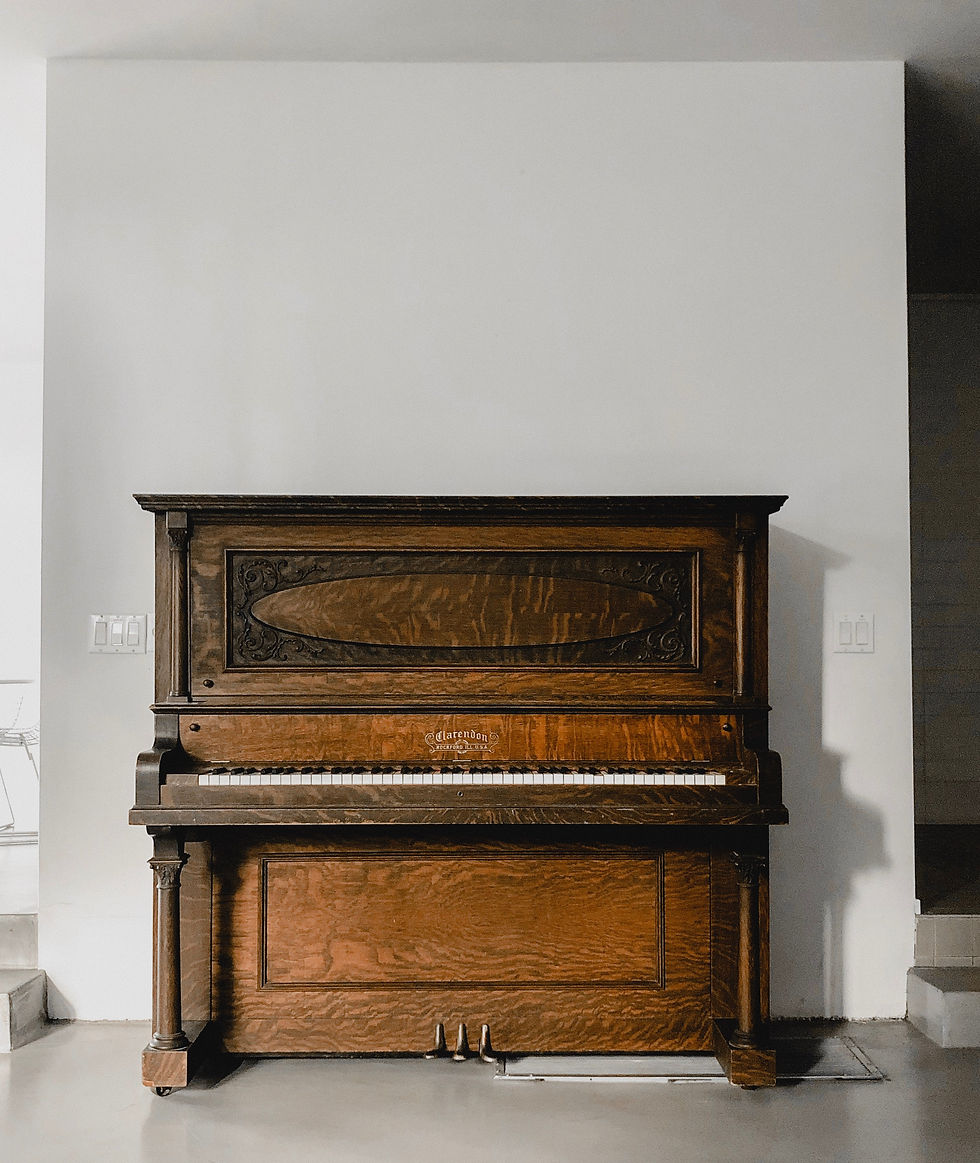Choosing the right piano is a significant decision that can profoundly impact your musical journey. With a variety of options available, including uprights, grands, electric pianos, and used instruments, the process can be both exciting and overwhelming. In this blog post, we'll guide you through the considerations for each type, helping you make an informed choice that suits your needs and preferences.

Upright Pianos: Compact and Classic Upright pianos are a popular choice for many due to their space-efficient design and affordability. They offer rich sound and are perfect for beginners and small spaces. When choosing an upright piano, consider factors like the piano's height, brand, and condition. Be sure to test the action (how the keys feel when played) to ensure it suits your playing style.

Grand Pianos: Elegance and Artistry Grand pianos are the epitome of musical elegance. They offer exceptional sound quality and are favored by professionals and serious pianists. When choosing a grand piano, consider the size (baby grand, parlor grand, or concert grand), as it can impact both sound and space requirements. Additionally, examine the piano's craftsmanship, including the quality of the soundboard and action mechanism.

Electric Pianos: Modern Convenience Electric pianos have come a long way in replicating the acoustic piano experience. They are lightweight, portable, and often equipped with various sound options and digital features. When choosing an electric piano, focus on the touch and feel of the keys (weighted or semi-weighted), the quality of built-in sounds, and any additional features like connectivity options.

Used Pianos: A Budget-Friendly Choice Used pianos can be a great option for those on a budget. They often provide excellent value for money. However, when buying a used piano, ensure it has been well-maintained, and have a professional technician inspect it for any hidden issues. Consider the age, brand, and overall condition of the instrument to make an informed decision.
Factors to Consider:
Budget: Determine your budget range beforehand. Remember that pianos can vary significantly in price, so having a clear budget will help narrow down your choices.
Space: Consider the available space in your home. Measure the area where the piano will be placed to ensure it fits comfortably.
Purpose: Are you a beginner, an intermediate player, or a professional? Your skill level and musical goals will influence your choice.
Sound Preference: The type of music you play and your preferred sound quality should also guide your decision. Play different pianos to find the tone that resonates with you.
Longevity: Think about your long-term commitment to the instrument. Will this piano be a lifelong companion, or are you looking for something to start with?
Maintenance: Consider the ongoing maintenance requirements. Acoustic pianos need regular tuning, while electric pianos generally require less upkeep.
Choosing the right piano is a personal journey that should align with your musical aspirations, budget, and available space. Take your time to explore the options, play different pianos, and seek advice from professionals. Whether you opt for the classic elegance of a grand piano, the convenience of an electric keyboard, the compact charm of an upright, or the budget-friendliness of a used piano, your choice should inspire you to make beautiful music for years to come.
Comentarios